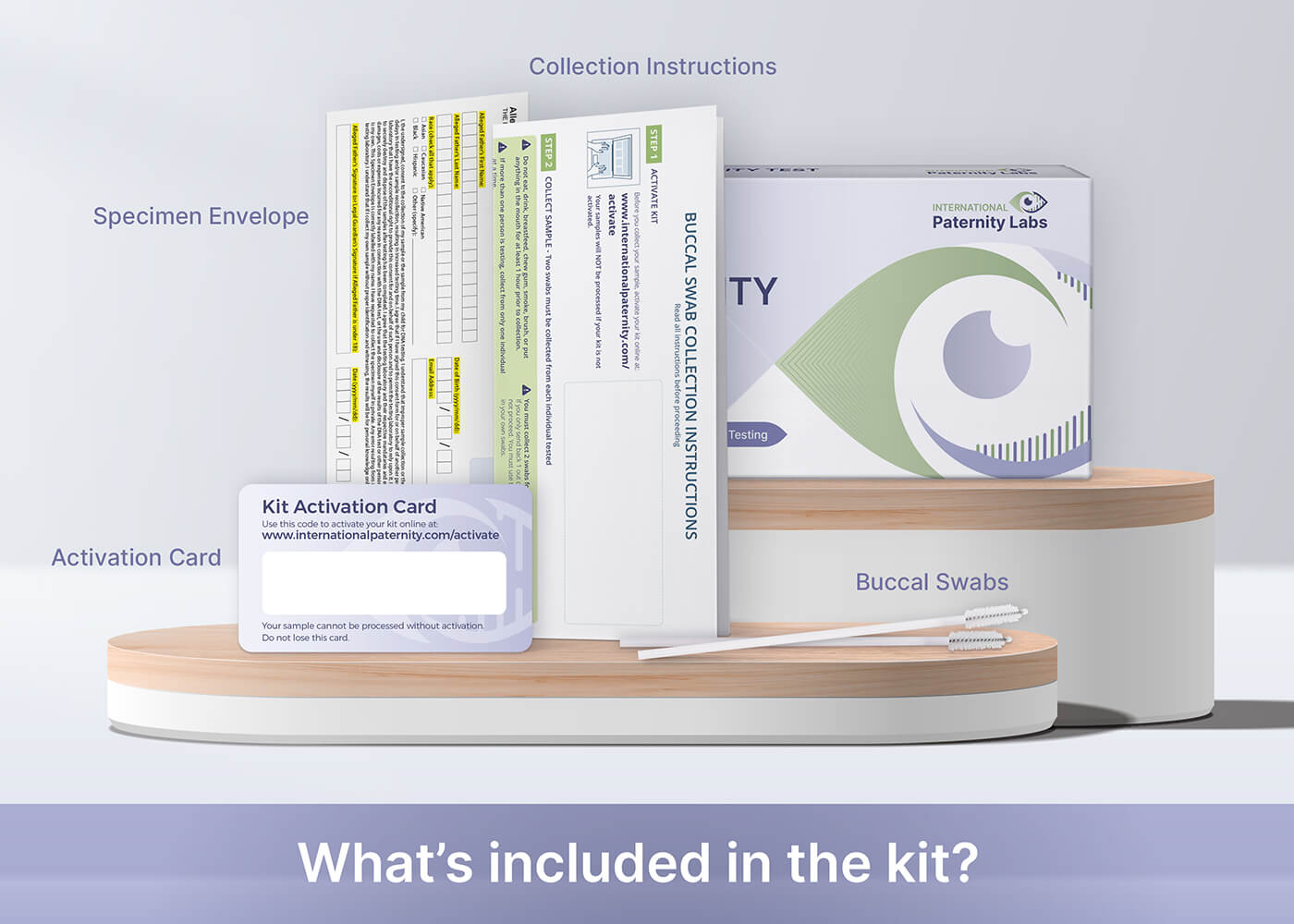DNA Tests

Order Your Confidential Home DNA Test Online!
Common uses for the mtDNA Sequencing Test:
To supplement the results a relationship test, such as a sibling test, grandmother test, aunt test, or cousin test
While DNA parentage tests (paternity test and maternity test) can always provide an absolutely conclusive result regarding parentage, other relationship tests types are not as discriminating as the DNA parentage tests. DNA Sibling tests, Grandparentage tests, Aunt/Uncle tests and Cousin tests are usually only ordered when the parents are not available for testing and there is no other choice but to test other relatives because these tests are not as discriminating as a parentage test. If a kinship test is performed and the result is not conclusive enough, mtDNA testing can be considered as a supplemental test type for the kinship test to see if individuals are linked on their maternal line. All individuals (both male and female) who have descended from the same maternal lineage will have the same mtDNA profile. If two individuals do not have the same mtDNA profile, it would conclusively confirm that they are not related along their direct maternal line.
Here are some examples of situations where a mtDNA sequencing test may assist in supplementing a relationship test:
To check whether two individuals (either gender) have descended from the same maternal line, even if they are not immediate family members
Individuals who have descended from the same maternal line will have the same mtDNA profile, even if they are not immediate family members. Any two individuals (both male and female) can test and compare their mtDNA to see if they possibly descended from the same maternal line. If the test shows that two individuals have different mtDNA profiles, it would conclusively prove that they definitely are not from the same maternal line.
To check the relationship between a grandchild and a maternal grandmother (mother’s mother)
If a Grandmother test between an alleged maternal grandmother (mother of alleged mother) and an alleged grandson or granddaughter does not provide a conclusive result, comparing their mtDNA to see if it matches can provide further confirmation. If the alleged maternal grandmother and grandchild have completely different mtDNA profiles, it will conclusively confirm that the alleged grandchild is not the true biological grandchild of the alleged maternal grandmother.
To check whether two siblings have the same mother
If a sibling test between two alleged siblings (either gender) does not provide a conclusive result, additional mtDNA testing can be performed. If the two siblings do not have the same mtDNA profile, it will conclusively confirm that they do not share the same biological mother.
To check whether cousins have the same maternal grandmother (to see if their biological mothers are sisters)
If a cousin test between two cousins (either gender) who allegedly have the same maternal grandmother does not provide a conclusive result, additional mtDNA testing can be performed. If the two cousins do not have the same mtDNA profile, it will conclusively confirm that they do not have the same maternal grandmother and that their biological mothers are not sisters.
To check whether an alleged maternal aunt or uncle (sibling of alleged mother) is the biological maternal aunt or uncle of a child
If an aunt or uncle test performed between an alleged maternal aunt or uncle (sibling of alleged mother) and a child (either gender) does not provide a conclusive result, additional mtDNA testing can be performed. If the alleged maternal aunt or uncle andchild do not have the same mtDNA profile, it will conclusively confirm that the alleged maternal aunt or uncle is not the true biological maternal aunt or uncle of the child.
FAQs
Which regions of the mtDNA should I test?
mtDNA consists of 3 regions, namely: HVR1, HVR2 and Coding Regions. The more regions which are tested, the more stringent the comparison with another individual. For example, a perfect marker at all three regions with another individual is a much stronger match than a match at only the HVR1 region. It is ok to test only the HVR1 region first to see if there is a match. If you are already not matching the other individual at the HVR1 region, then there is no need to test more markers. However, if you get a perfect match with another indivdiual or a very close match at the HVR1 region, then you can get further confirmation by testing the HVR2 and Coding Regions.
If my mtDNA is a perfect match to someone else, does it mean that I am definitely related to them?
If your mtDNA is not a match to another person, it conclusively proves that you are not linked to that person on your maternal line. If your mtDNA is a perfect match to another person, it means that you may possibly be linked on you rmaternal line, but it does not necessarily mean that you are closely related. It can only be used to exclude maternal linkage or support the possibility of maternal linkage.
Can the mtDNA test tell you the relationship type?
No. All females who have descended from the same maternal line will have exactly the same mtDNA profile. For example, a daughter, her mother, her grandmother, her great grandmother, her maternal aunt, her maternal aunt’s children, her siblings, etc. will all have exactly the same mtDNA profile because they all share the same maternal lineage. The test cannot distinguish between different relationship types. For example, it cannot tell you if someone is your mother, versus your aunt or your sister. It can only tell you if you and another person share the same maternal lineage.
How will I receive my results?
You can choose to receive your results by mail, email or both. Email is the fastest way to get your results back because the email reports are sent out the same day that the test is completed.
Will this test give me any ancestry information?
The mtDNA sequencing report will only give you your mtDNA sequence in FASTA format as well as a table showing you the mutations in your mtDNA region tested. The report will not provide you with your mtDNA haplogroup and it will not make any ancestral interpretations. If you wish to trace your ancestry using DNA, please see the Maternal Ancestry Test.
Are my results confidential?
Yes, your results are 100% confidential. No one will be able to access your account or your results unless you give them your confidential account login. You can change the password to your account at any time. Please remember to safeguard your login information and do not share it with anyone.


